Project Co-ordinator: Prof. UAM dr hab. Maciej Karpiński |
|
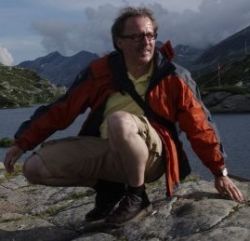 |
Professor at the Chair of Psycholinguistics at the Institute of Applied Linguistics, Adam Mickiewicz University. Studies speech prosody and gestural behaviour in interaction.
|
Prof. UW dr hab. Silvia Bonacchi |
|
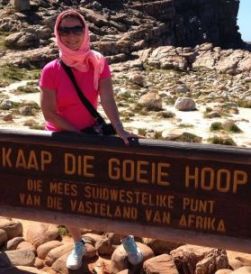 |
Prof. Silvia Bonacchi, Institute of Specialised and Intercultural Communication at Warsaw University (www.ikla.uw.edu.pl) s.bonacchi@uw.edu.pl
|
Prof. UAM dr hab. Tomasz Wicherkiewicz |
|
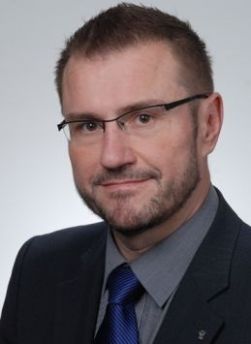 |
Tomasz Wicherkiewicz – linguist, sociolinguist, specialist in minority languages and minority studies; lecturer at Adam Mickiewicz University in Poznań, Poland (Faculty of Modern Languages and Literatures, Chair of Oriental Studies, Department for Language Policy and Minority Studies). Scholarly interests: sociolinguistics of lesser-used languages, typology of their sociopolitical situations; microlanguages and regional/collateral languages, minority language policy and language planning, language endangerment and documentation. International expert in minority language policy. Main publications:
|
Dr hab. Katarzyna Klessa |
|
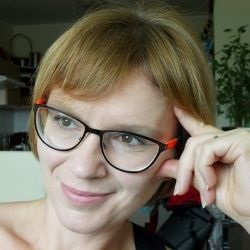 |
Katarzyna Klessa is an assistant professor at the Institute of Applied Linguistics, Adam Mickiewicz University in Poznań. Involved in research and development for the following fields:
|
Dr Violetta Frankowska |
|
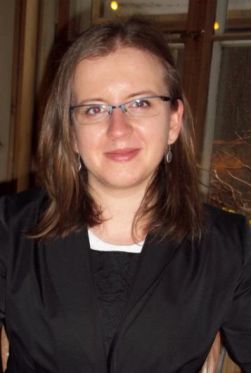 |
Assistant Professor at Institute of German Philology (Adam Mickiewicz University in Poznań). She studied German (MA), Postgraduate Studies in Translation and Interpreting. PhD in German Linguistics.
|
Dr Ewa Jarmołowicz-Nowikow |
|
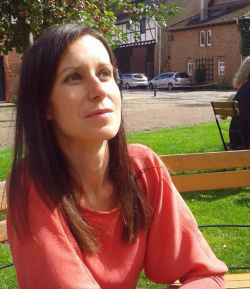 |
Assisstant Professor at Institute of Applied Linguistics, Faculty of Modern Languages, Adam Mickiewicza University in Poznań. Her research interests focus on multimodal analysis, in particular its non-verbal dimension. She has taken part in several research projects on multimodal discourse analysis, in which she was responsible for annotation and analysis of nonverbal behaviour. Her publications concentrate on nonverbal aspect of communication from the developmental and cultural perspectives, and on the role of gesture. |
Dr Konrad Juszczyk |
|
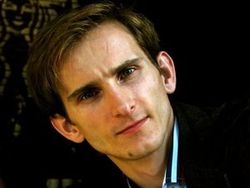 |
Dr Konrad Juszczyk researches multimodal communication. He works at the Department of Psycholinguistics at the Institute of Linguistics, Faculty of Modern Languages and Literatures, Adam Mickiewicz University in Poznań. At present he is the Primary Investigator of two externally funded projects on the analysis of the interaction between multimodal communication and cognitive and emotional processes focusing on multimodal metaphor (financed by the National Science Centre and the Foundation for Polish Science). He also participates in two further projects financed by the Ministry of Science and Higher Education and National Programme for the Development of the Humanities. Morever, he is co-organising scientific conferences (RAAM and GESPIN) and scientific meetings for PhD students and researchers at AMU in Poznań, FACEBOOK discussion group (REMAT+) and linguistic wiki PBWORKS. In the present project Dr Juszczyk will advise on annotation, analysis and interpretation of gesture using NEUROGES coding system. |
Dr Miłosz Woźniak |
|
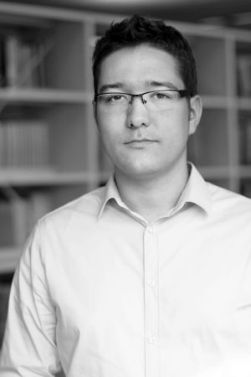 |
Assistant Professor at Institute of German Philology (Adam Mickewicz University in Poznań). He studied German (master’s degree in 2010) and Translation and Interpreting (postgraduate diploma in 2012), doctoral degree in German Linguistics (2014).
|
Mariusz Mela, MA |
|
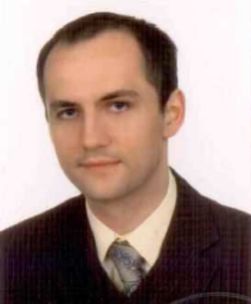 |
Mariusz Mela is a PhD student at the Faculty of Applied Linguistics at Warsaw University.
|
Karolina Mocek, MA |
|
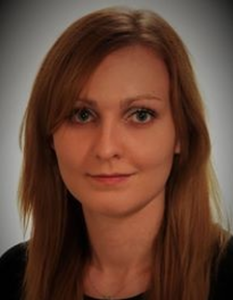 |
PhD student in linguistics at Institute of German Philology (Adam Mickewicz University in Poznań). She studied German (master’s degree in 2015):
|
Virginia Schulte, MA |
|
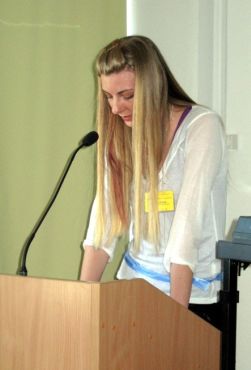 |
Virginia Schulte. Warsaw University, Institute of Specialised and Intercultural Communication.
|
German Partners:
Prof. Dr Cornelia Mueller |
|
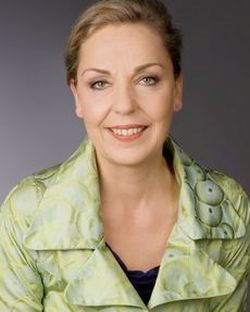 |
Cornelia Müller is a Professor of Language Use and Multimodal Communication, Faculty of Social and Cultural Sciences, European University Viadrina Frankfurt (Oder), Germany. She has launched and co-edited the international journal GESTURE and the book series GESTURE Studies (Benjamins) from 2000 to 2010. Her research interests focus on theory and analysis of multimodal communication, in particular the ways in which gestures become meaningful parts of utterances and the role of gesture and words in constructing metaphorical meanings.Her most recent publications include:
|
Prof. Dr Nicole Richter |
|
| Junior Professor for Language Use and Applied Linguistics at the European University Viadrina in Frankfurt an der Oder, Germany. Her research questions predominantly focus on phonetics, pragmatics, cross-cultural communication and contrastive linguistics. She holds a PhD in Slavonic Linguistics (topic: Prosody of evaluative utterances: Experimental Studies on Russian) and is currently investigating the process of speech production for phonetic-prosodic cues and the structuring of conversation. Together with other Slavists in Germany and Russia, she is working within the scientific network „Urban Voices“ (DFG funded) and is heading (together with Prof. Konstanze Jungbluth) the PhD programme „ViaGG nad odrą“ at the Viadrina Center B/Orders in Motion. | |
Collaborators:
Dr Barbara Jańczak |
|
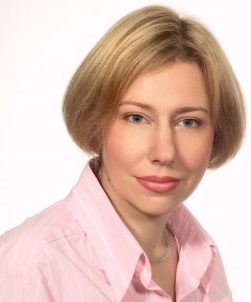 |
Dr Barbara Jańczak is an assistant in German-Polish Research Institute (European University Viadrina/Adam Mickiewicz University). She has been studying in Germany, France and Poland. She is working in the field of sociolinguistics. Scientific interests: multilingualism and language contact, bilingual language acquisition, border studies in multilingual context, bicultural and bilingual families. 2006-2011 she has carried out research on language and family relations of German-Polish families. Since 2013 she is examining the language contact in German-Polish border region. |
Sara Bonin (MA, Intercultural Communication Studies) |
|
| Sara’s research interests include language and identity, language and culture, contact linguistics, multilingualism, language learning/acquisition, foreign accent, language and power, as well as intercultural and cross-cultural communication. In her masters thesis, English with a German Accent – Subjectivity in Foreign Language Use, she conducted research at the University of California, Berkeley, examining the relationship between foreign accent and subjectivity in a study abroad context. She developed a strong interest in sociolinguistics and Polish language and culture during her studies in Eichstätt, Frankfurt/ Oder (Germany) and Warsaw as well as Poznań (Poland). In March 2015, she obtained her German-Polish Masters Certificate and she is currently contributing to the project “Multimodal Constructions of threat: conceptualizing danger and enemies in populist discourse about the EU in Germany and Poland (MMCT)” under the direction of Professor Nicole Richter. Since 2014, she has also contributed to the “Borderland” research team. | |